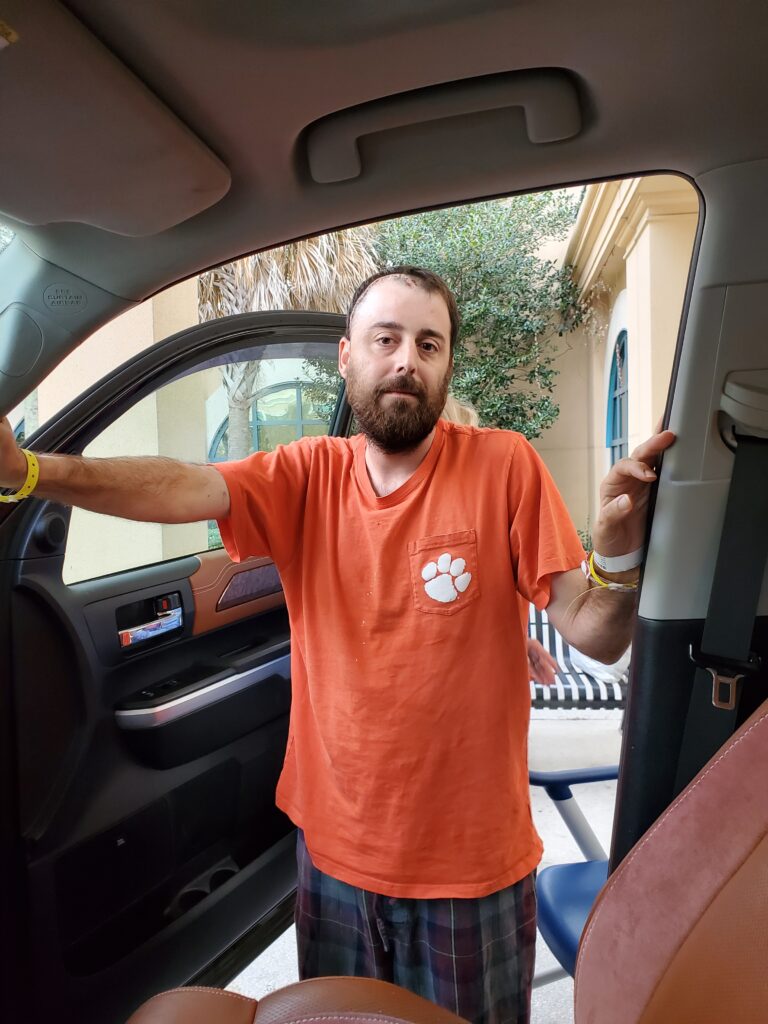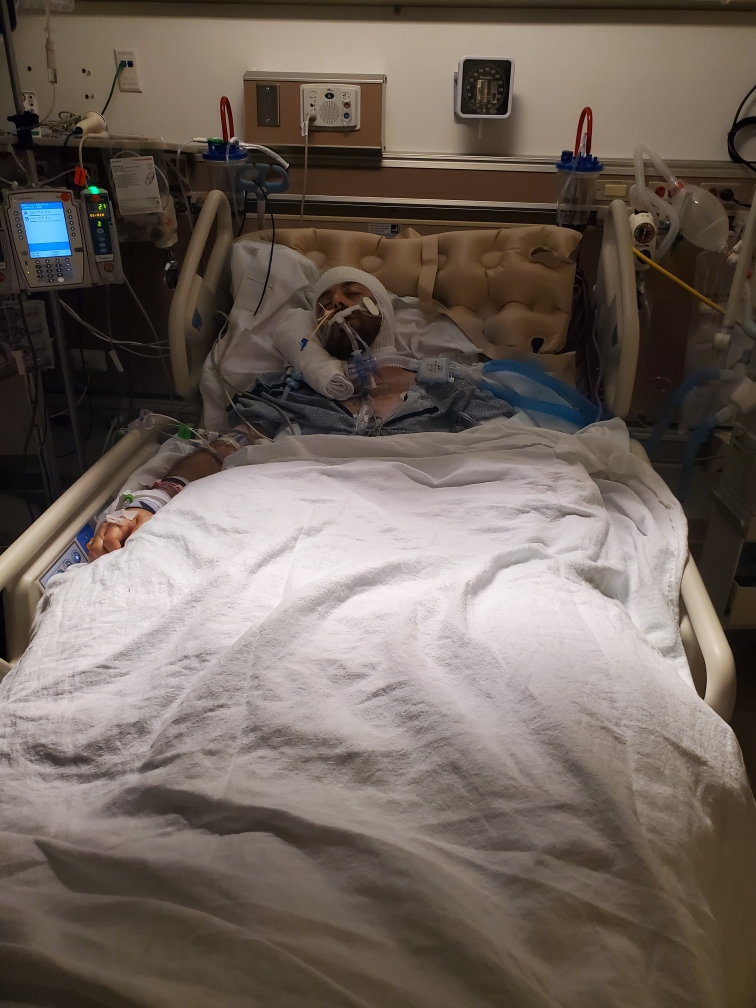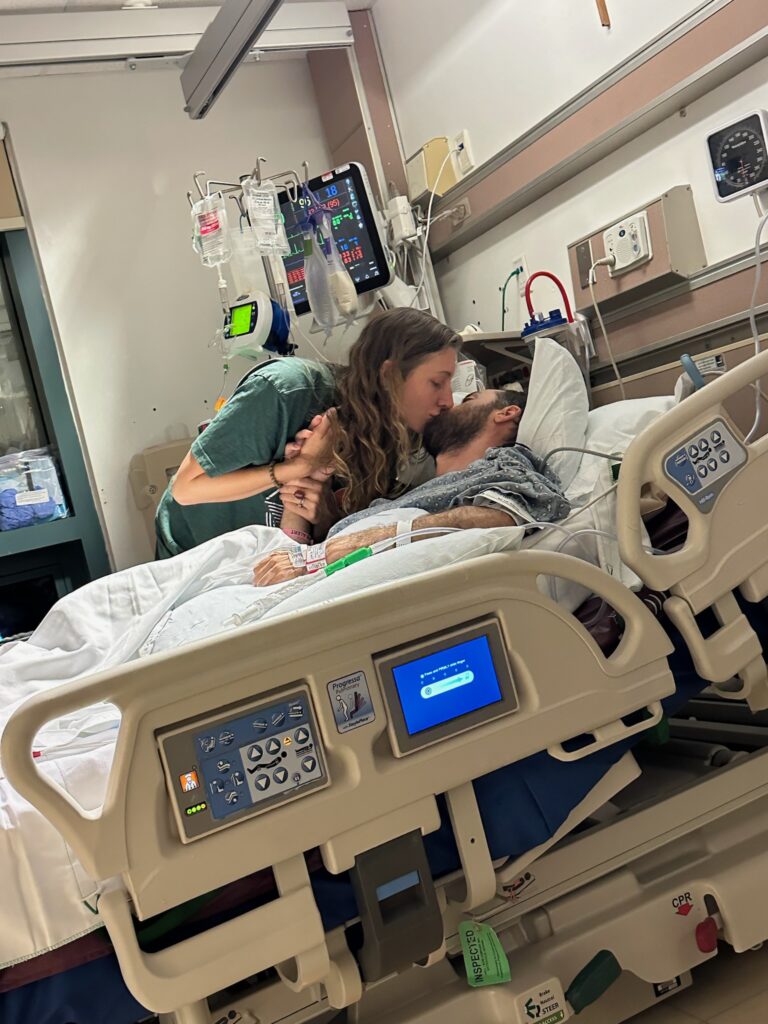Throughout the entire process of Butler’s craniotomy & tumor resection, his coma, intubation, and process of getting him off the ventilator and finally on a path to healing, we had not received any information in regards to his tumor. We (not so) patiently waited for news on his tumor, but everything else going on had everyone a bit distracted. A few days after Butler came out of his coma, we received news from his neurosurgeon that they received the test results from his tumor, and we made plans for him to meet and speak with us later that day. This moment felt so heavy as we wondered what news would come from the neurosurgeon. I sat on one side of Butler, and his mom sat on the other side as we waited to hear the words that would forever change our lives. “Butler’s tumor came back as Glioblastoma – brain cancer.” It was like the entire world came crashing down, but the full weight was not felt by me for a while. It took forever for me to process the information that had just been given to me. I watched as Butler and his mom reacted, and I tried to keep my tears inside. Obviously, everyone’s emotions were high. I held Butler’s hand, and said all the things I could think of to bring him comfort. “I’ll be by your side no matter what.” “We are going to make it through this.” What do you say to truly comfort someone who was just diagnosed with a terminal cancer? I was doing everything I could to comfort him, but inside I was falling apart.
Butler’s father, Marion Graham passed in 1999 from the same cancer, Glioblastoma. After Butler’s official diagnosis, I did as much research as I could. I learned that only 5% of Glioblastoma cases are genetic, and Butler was a part of that 5%. I didn’t need a doctor to tell me that. We also learned after digging further into his lineage that there were other cases of GBM in the family. There are only 12,000 new reported cases of Glioblastoma in the United States every year. This was not a coincidence. His oncologist swore it was not genetic. Fast forward about 6 months later, he comes back and tells us new studies are showing it actually can be genetic. Insert eye roll here. My research also showed the average prognosis of GBM is 6 to 8 months. After the happiness of my husband making it through a brain tumor, a heart attack, and a stroke, we were looking at a very grim outcome. That did not stop our hope, it did not stop Butler’s determination to learn to walk and function again. We kept pushing forward, because we had children depending on us.
The rest of Butler’s hospital stay consisted of daily physical therapy, occupational therapy, speech, and getting him ready to go home. He was quickly growing tired of being away from his family every night, of eating hospital food, of not being able to go outside. I believe a crucial part of healing is exposure to the sun, and everyone in the hospital who is able should be taken outside for some good old fashioned sunlight. There were 3 times where we were able to get his nurses to wheel him outside for some sunlight exposure. One time was when he was still in ICU, his nurses along with me and the kids wheeled him outside in his recliner. I will never forget the happiness on his face, the joy in my heart. It was like we were taking a walk as a family again. His nurses at Roper St. Francis were seriously top notch, and we will never be able to thank them enough for loving Butler the way they did.

When we couldn’t get Butler outside, we talked the nurses into allowing us to wheel him in his wheelchair around the floor. We would load Thomas up in the stroller, and Butler in his wheelchair, and we would walk lap after lap. The floor he was on was a large circle with 2 nurses stations in the middle, so it was perfect. I remember feeling like we were a disturbance to others around us. I don’t really think we were, but it felt like it. I really just wanted to be with my husband and kids. For us to feel some kind of normalcy again, and walking those laps around the hospital floor was normal at the time. We had so much fun doing that, and it helped keep Butler’s spirits up. He struggled whenever I took the kids home for the night. He would beg me to stay overnight, but with the kids I just couldn’t. His mom and sister took turns staying with him because none of us could bear the thought of him being alone. When I wasn’t with him at the hospital, he was blowing my phone up! At the time it broke my heart and stressed me out, because as soon as I would leave he would be calling and texting me asking where I was, when I was coming back. Now, we look back at those old text messages and laugh because he really was being quite silly! Not long before we were able to take him home, he had 34 staples removed from his head. According to Butler, it was incredibly painful to experience.

Soon, there were discussions of Butler going to stay in a rehab facility downtown. Butler DID NOT want to go to a rehab facility. He wanted to go home! He was looking at 1 to 2 weeks in the rehab facility, and the thought of that made him absolutely miserable. At the time, I thought it was what he needed, and even though he dreaded it, I was prepared to drive downtown everyday to be with him through rehab. Then, literally overnight, the decision went from him going to a rehab center, to “He may go home TODAY!” TODAY?! I was not ready. We have 3 BIG dogs (my wonderful best friend had been keeping them in the weeks Butler was in the hospital. If you ever need a wonderful in-home boarder, contact The Hippie Mutt Hutt,) and a really small house. Butler was still somewhat unsteady on his feet, I had a baby, and I knew that there would be so much on my plate in helping him with the most basic things at home. It wasn’t that I wasn’t willing to do these things, but I was scared. I was so afraid he would fall at home because of the dogs. So afraid of what our new life held at home, outside of the hospital, outside of all the professional help. Could I handle all of that??

On November 18, just in time for Butler to be able to enjoy Thanksgiving, he was released from the hospital, and we went home to continue his healing. From there, we would start his extensive treatment of radiation/chemotherapy, and face our new life together; navigating cancer and raising a family.
If you’re still here, reading and keeping up, THANK YOU! Part 5 will be released soon.



